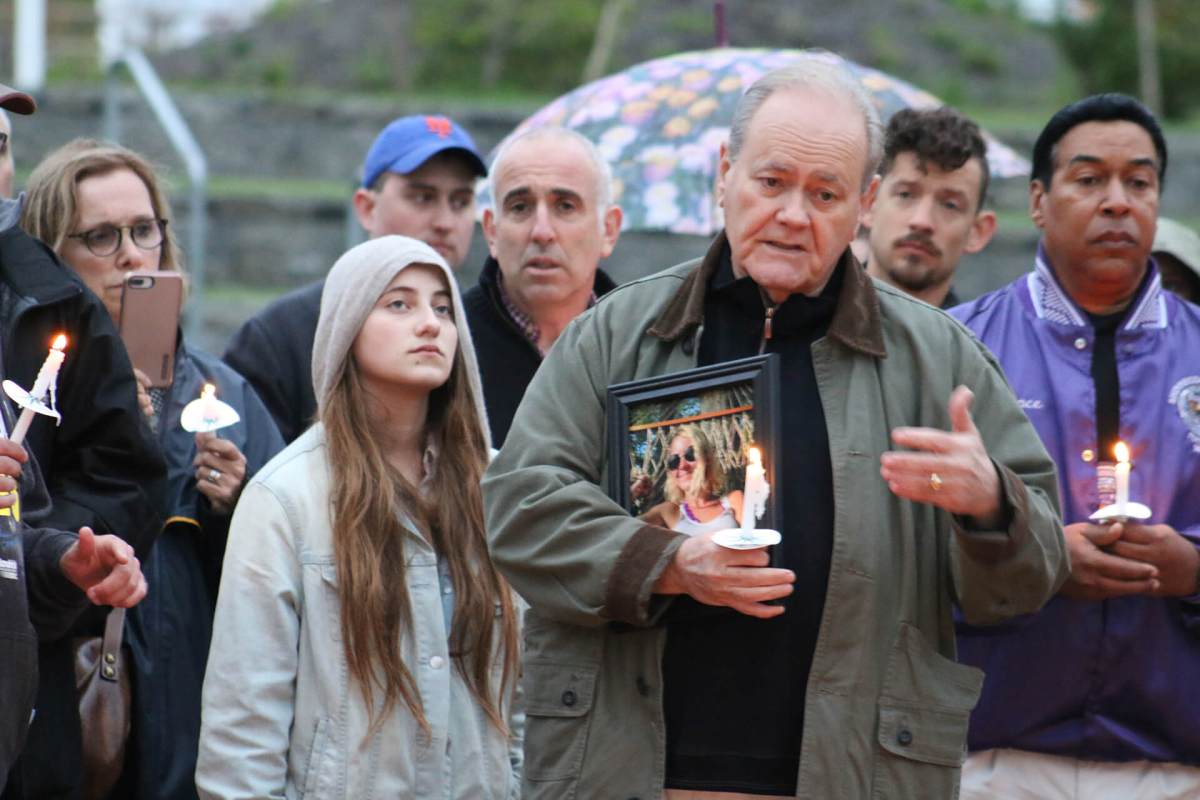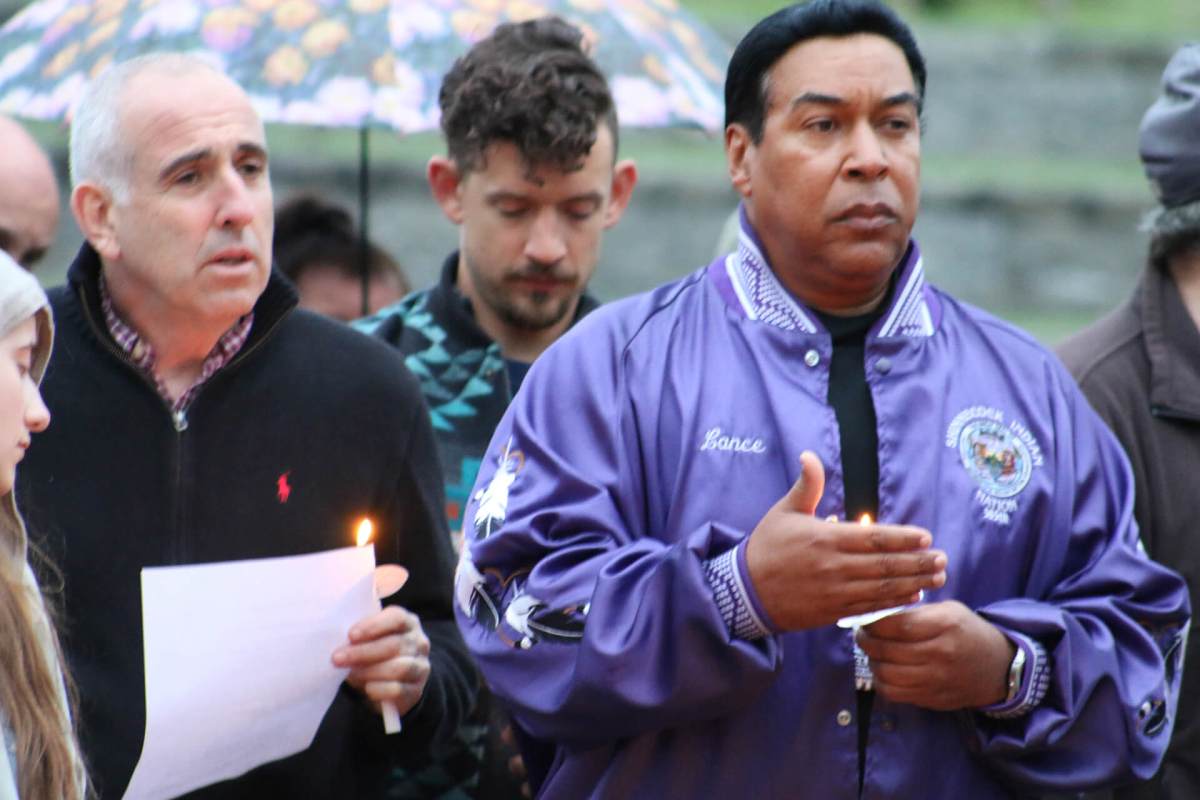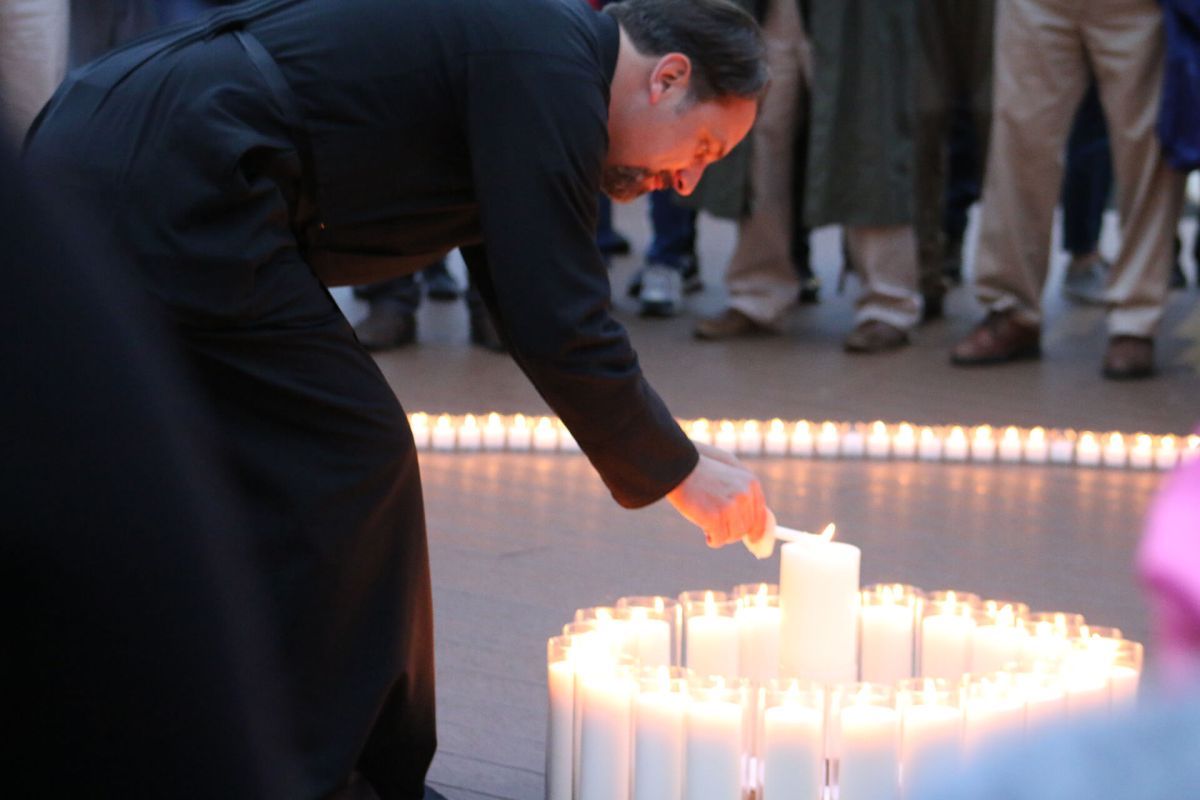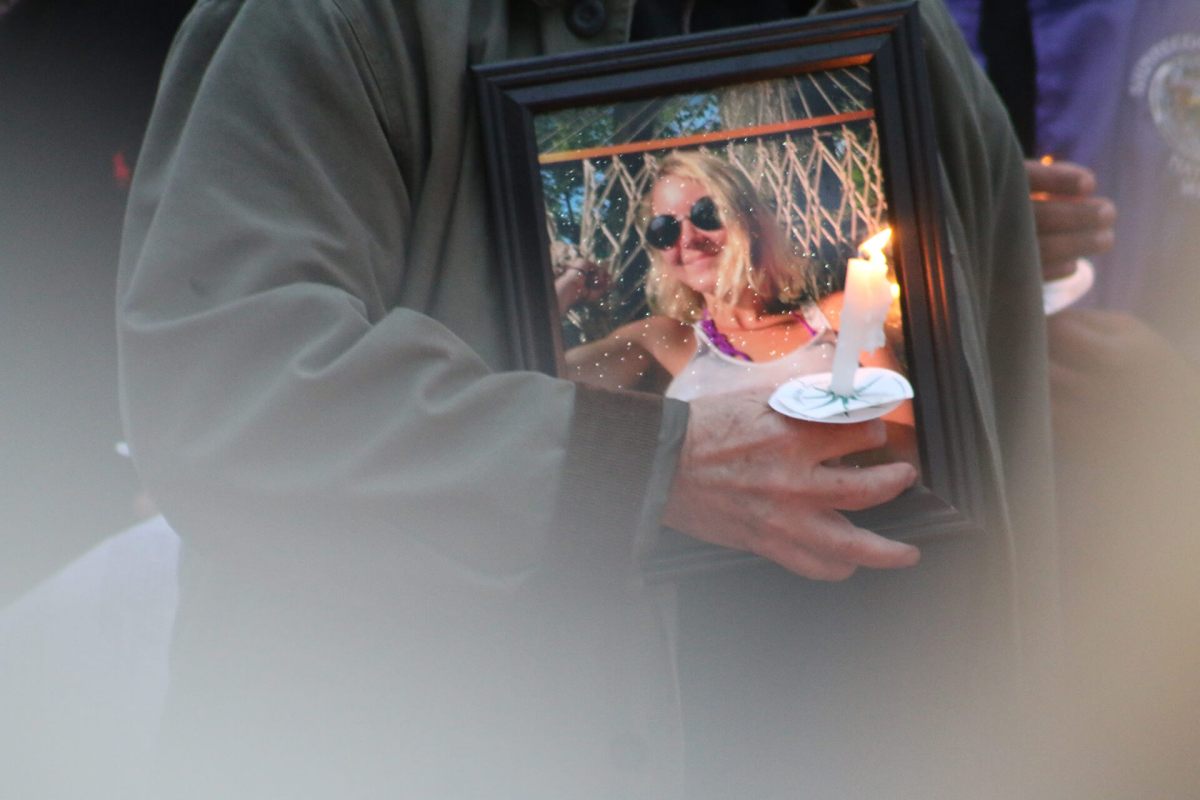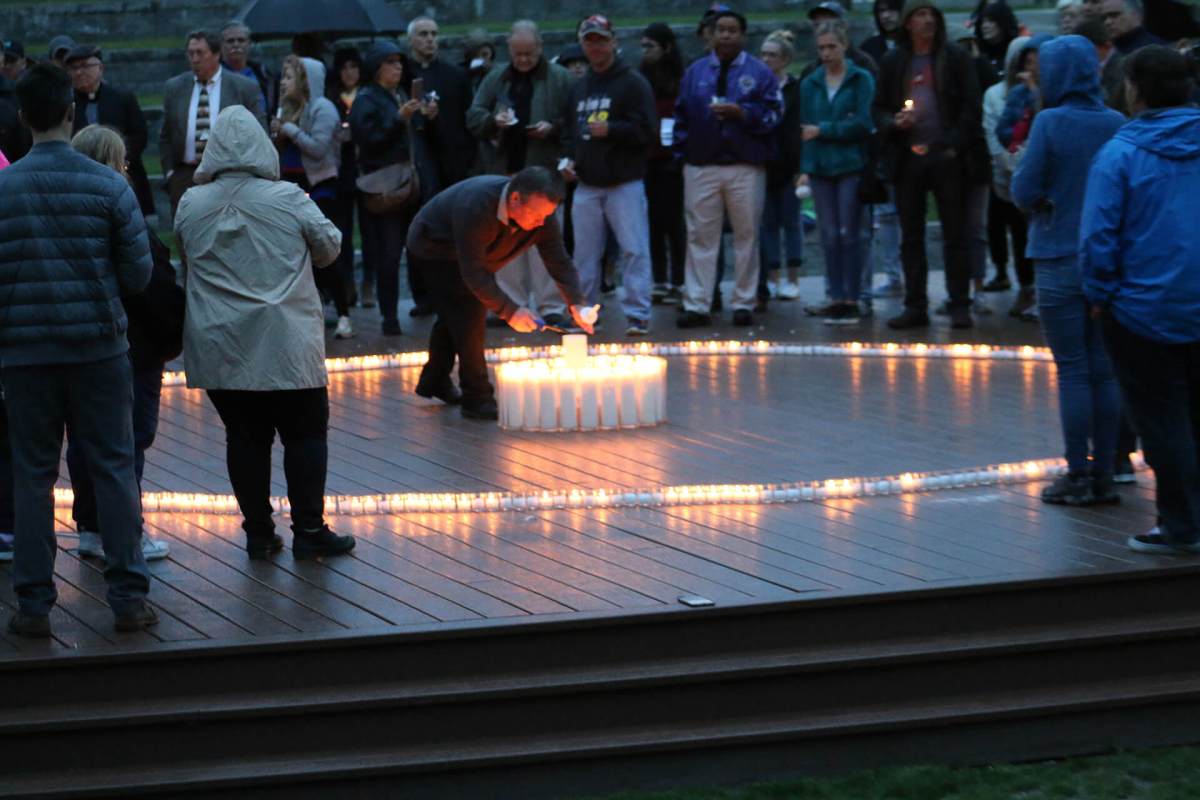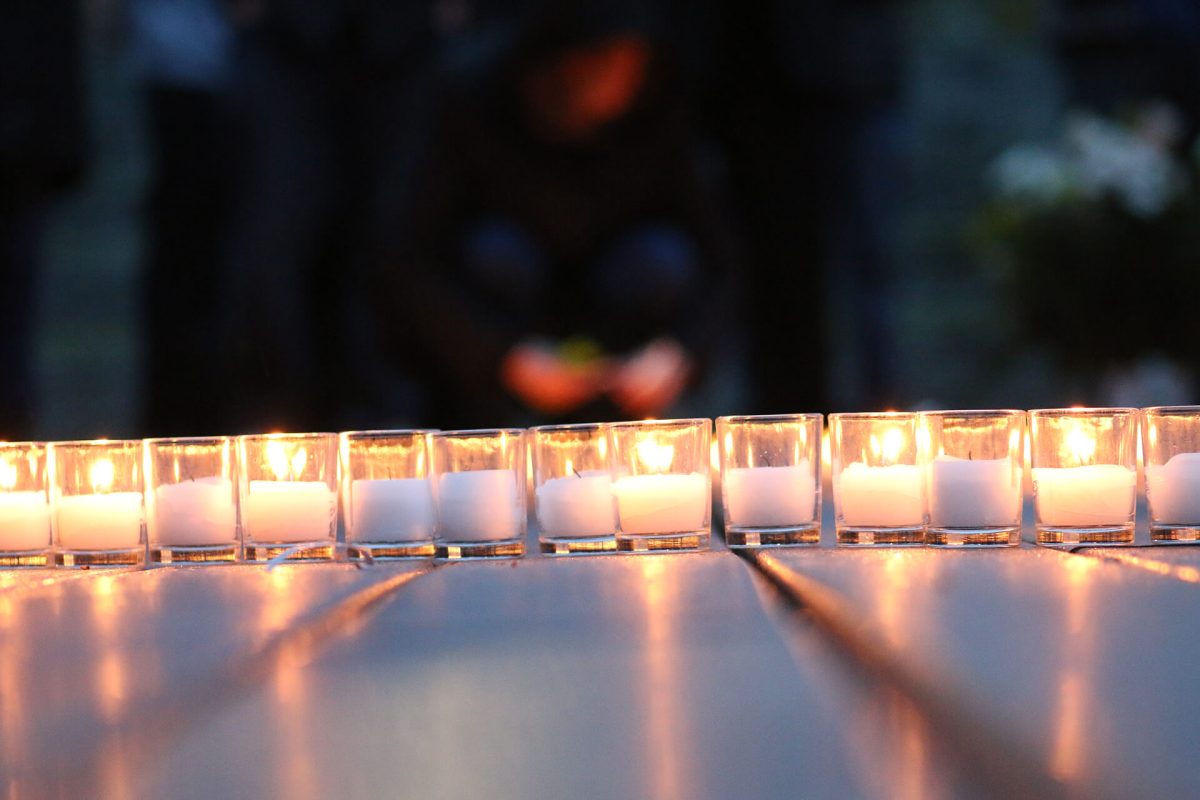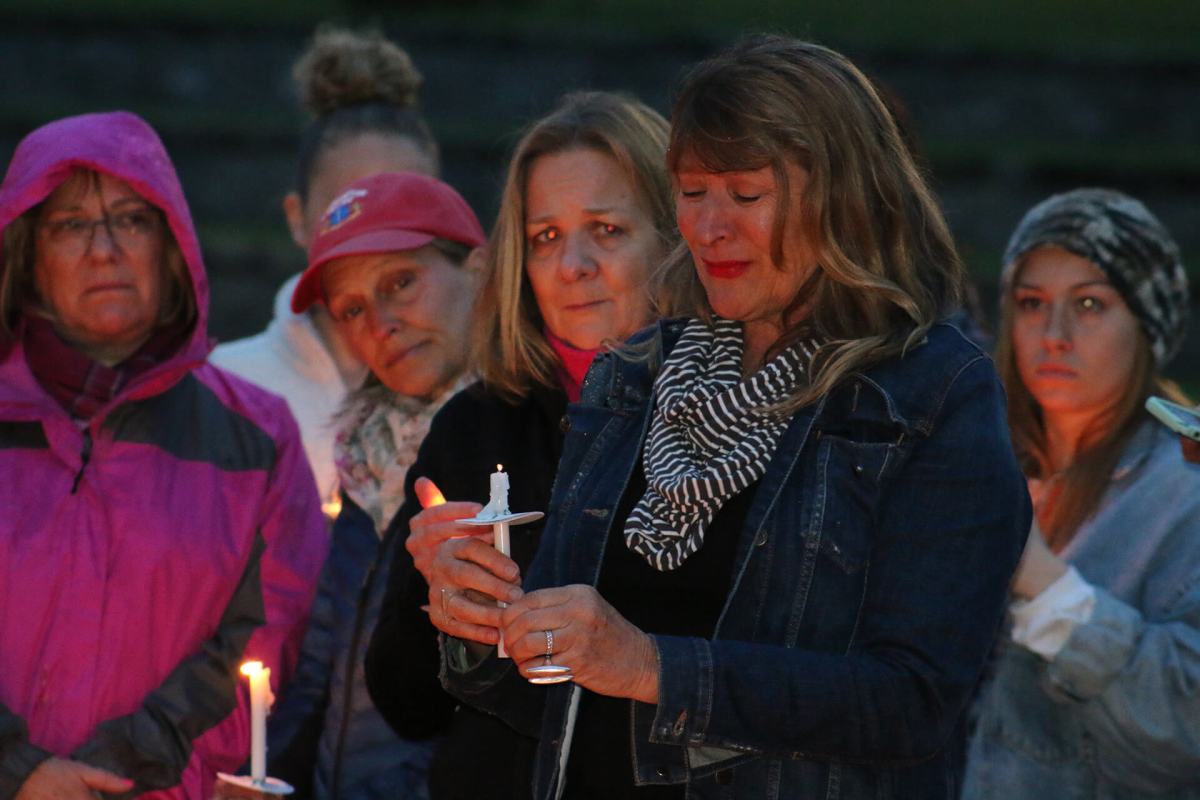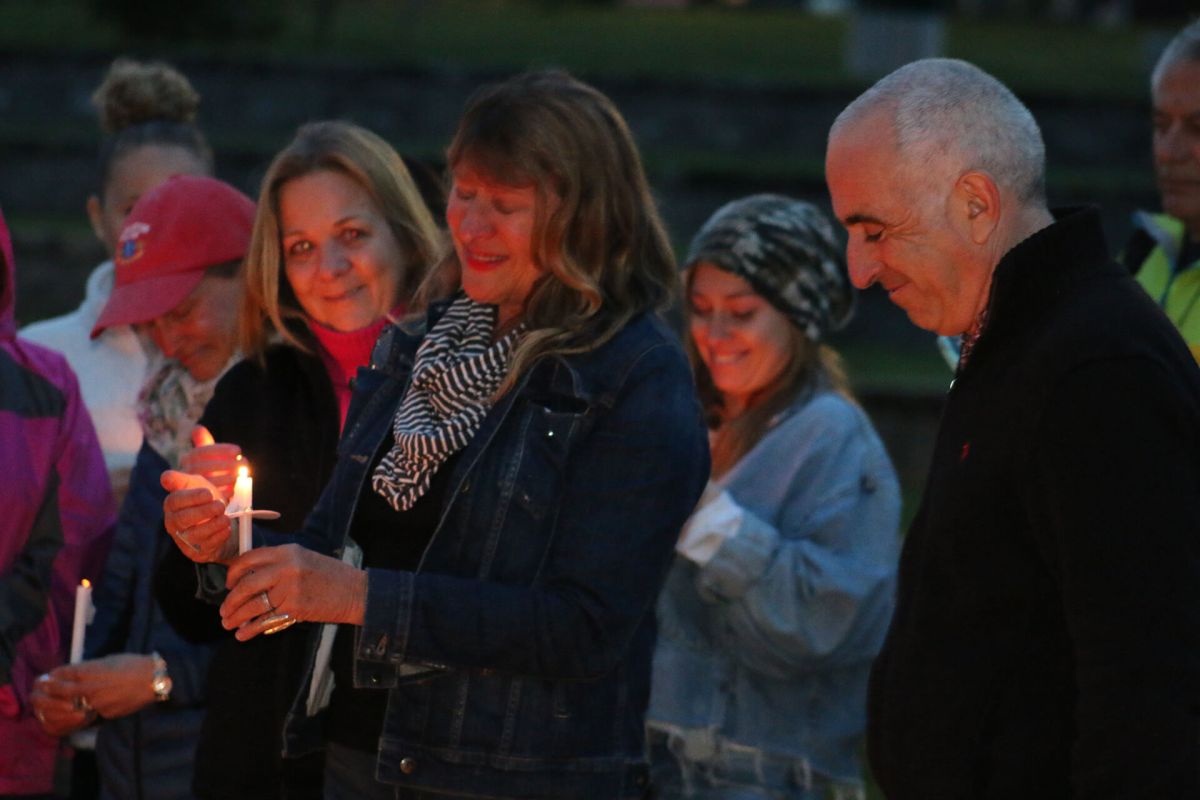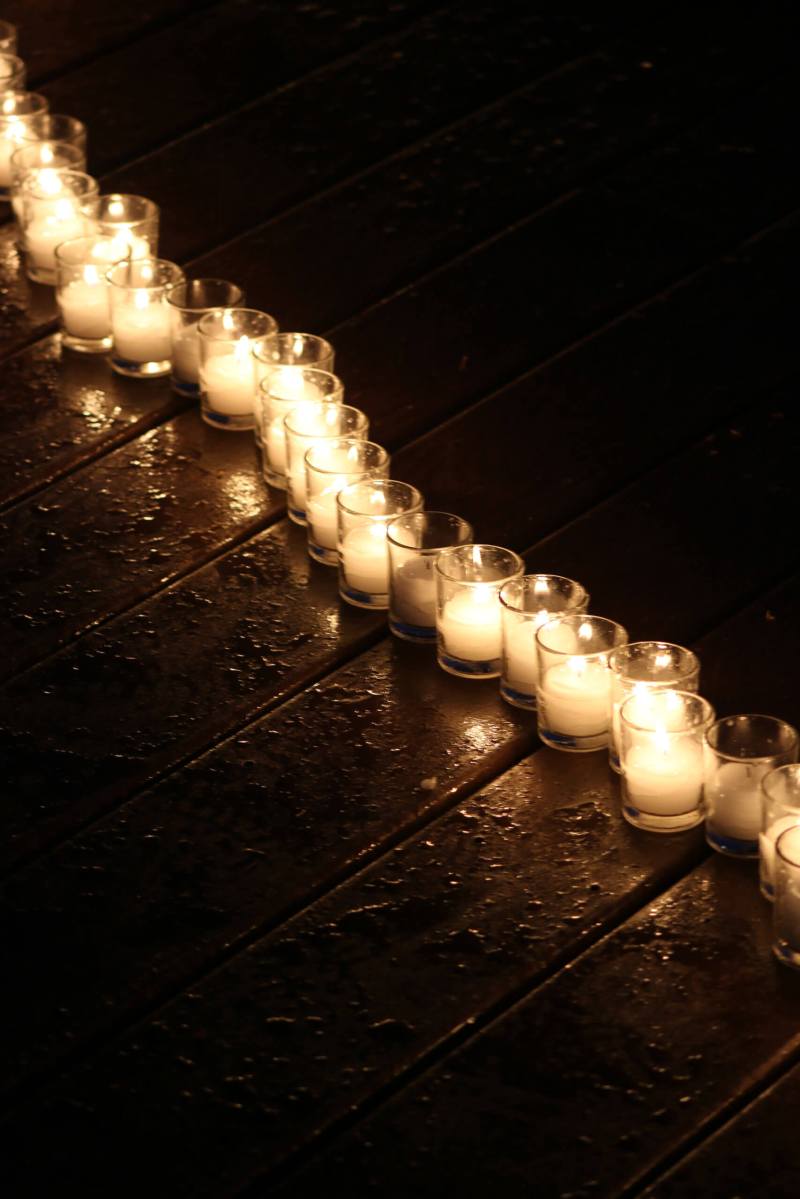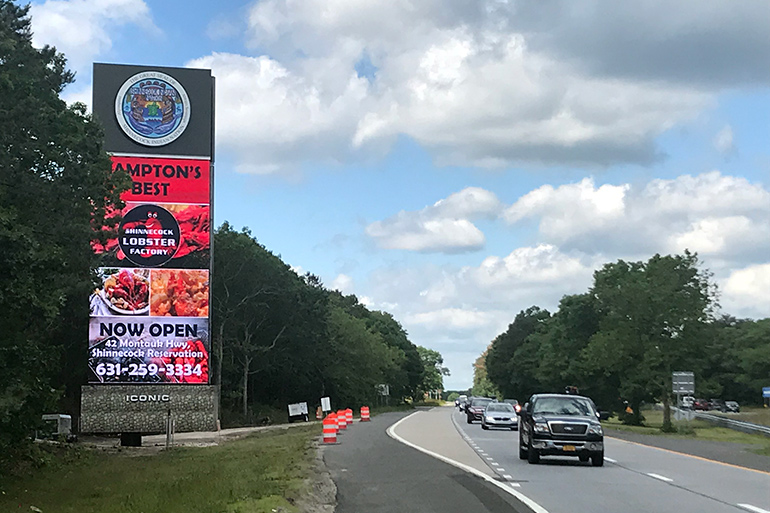Lighting The Darkest Of Nights
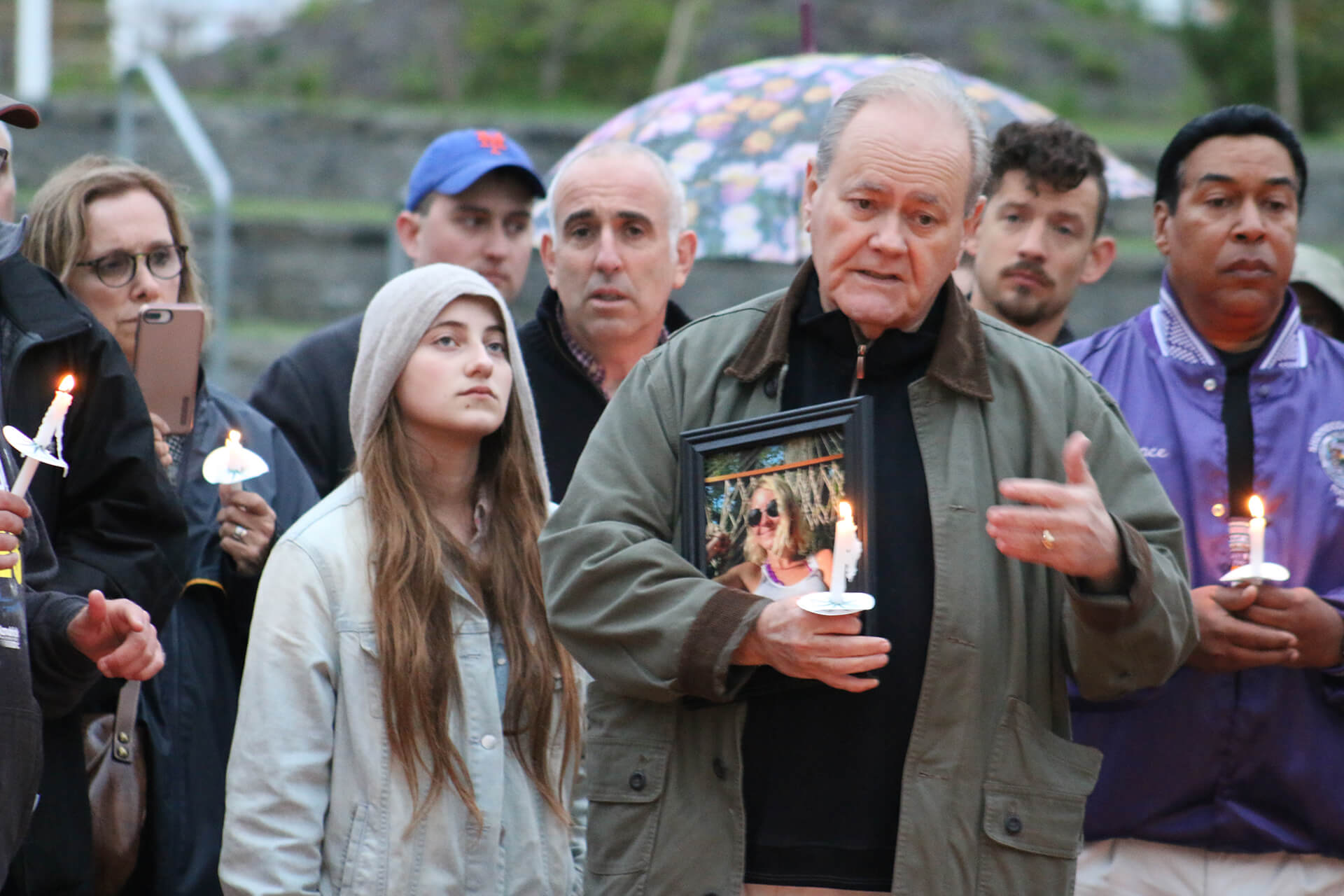
A mother stood in the rain sobbing Saturday night in Good Ground Park in Hampton Bays at a candlelight vigil for those lost to opiate addiction.
Her son was among them. She remembered aloud finding her son inside their home overdosed and then frantically trying, in vain, to revive him as he lay on the floor. She said he was an angel who comes down from heaven to visit like all of the others who have died from opiate addiction, and he was represented by one of about 400 flickering candles spread out in a circle on the amphitheater’s stage.
Another mother spoke of wanting to die herself because the loss of her son was too great for her to bear anymore, and another recalled seeing a phone call from the medical examiner’s office, and in her denial, trying to figure out the reason for the phone call if not the one she feared.
One mother said she stopped crying for a period of time because she did not see the point in it anymore. She fought back the tears, but then cried along with others in attendance — mothers, fathers, sisters, and friends who all shared their own stories of loss.
“I was like, ‘I don’t want to come tonight. What are we going to do? Sit around and cry, you know, and talk about our child?’” said Jacqui Leader, who lost her 25-year-old son Pascal “Sax” Leader almost five years ago. “Sax knows I love him. I just thought I’d read a poem that someone else wrote because . . . part of me really died with him.”
Roughly 100 people turned out to the vigil, braving the cold and rain over the span of an hour to listen to each other’s stories. The vigil was organized by the Southampton Town Opioid Addiction Task Force as a way to mark the lives of those who were lost, and also to provide an outlet where family and friends of victims can grieve.
The service included prayers offered by local religious leaders, as well as drumming by members of the Shinnecock Indian Nation. Tribal Trustee Lance Gumbs, who lost his son to a fentanyl overdose this past September, said it is hard for him to accept what has happened, but it has also made him angry.
“For me as a human being, to stand here amongst all of you who have lost their loved ones, my heart goes out to you. It’s an unbelievable feeling. It is a feeling that I am having a difficult time even understanding it. Here was this healthy young man, who was full of life, full of vigor, and all of a sudden one day, he is gone,” he said.
Town Supervisor Jay Schneiderman, co-chair of the task force, said the 359 candles formed into a circle represented the number of people lost in Suffolk County in the past year, while the remaining 19 inside the circle represented the people who died in the township last year. The lone candle in the center stands for the one person who has died so far this year in the township.
“This is the first vigil of its kind here in Southampton. I am hoping we gather again to an empty stage next year, or maybe just the one candle. So, let’s commit ourselves as a community to prevent further loss,” he said.
Former News 12 Anchorman Drew Scott, who lost his granddaughter, Hallie Rae Ulrich, last year, said it’s important to fight the stigma of drug addiction.
“One way to stop the stigma and maybe fight the crisis — this epidemic — head on, is I think awareness has helped tremendously to cut down the number of deaths in Suffolk County and in Southampton Town,” said Scott, who is the task force’s co-chair.
Hallie’s cousin, McKenzie Jenkins, who at 16 years old is the youngest member of the task force, told the group there is nothing to be ashamed of to have a family member or friend struggling with an addiction because it’s a disease and urged those in attendance to be open to helping people who might be in need of a helping hand.
“You don’t know what just a smile can do to change a person’s life,” she said.
Leader believes the world we live in is a “school of life” of sorts and that everyone is here on Earth to learn. The mothers’ children — people — who were lost to addiction had something to learn in their lives as well. Now, they know what they were supposed to learn, like, “‘Oh, jeez, yeah,’” she said.
“I think that they didn’t accept love,” she said agreeing with another speaker, adding, “Love is really hard to accept from your family, from your friends, from your community. You say, ‘What are you doing?’ And, it is an illness. And I think [those lost] are all going to come back as a flower, as another person, and they are going to feel love. And, that is what is so beautiful about being here tonight. I just feel together with all of you.”
peggy@indyeastend.com
